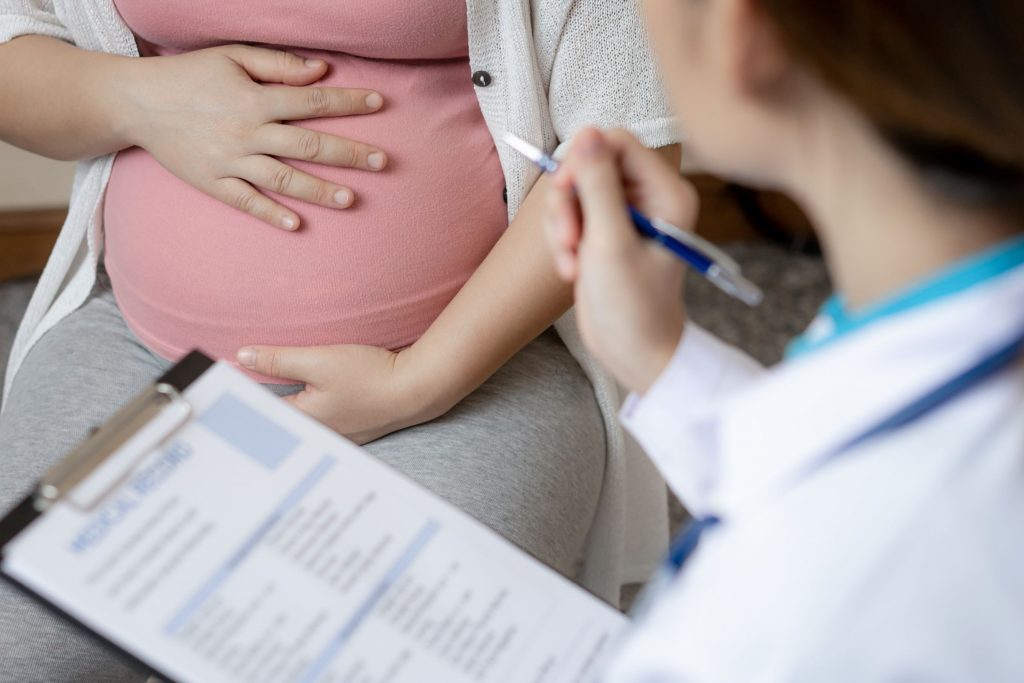USF Health faculty earn NIH grant to create coordinated-care program that better serves pregnant patients with opioid use disorder
Faculty across several disciplines at USF Health earned National Institutes of Health funding to streamline prenatal, obstetric, pediatric, treatment, behavioral and community health care for patients with opioid use disorder.
Called CADENCE (Continuous and Data-Driven Care), the new program will better serve pregnant patients and new parents, as well as their infants, as they navigate the care they need for managing opioid dependence.
Co-principal investigators for the HD2A R61/R33 grant are Kimberly Fryer, MD, MSCR, assistant professor in the Department of Obstetrics and Gynecology in the USF Health Morsani College of Medicine, and Jennifer Marshall, PhD, CPH, associate professor in the USF Health College of Public Health, and fellow in the Lawton and Rhea Chiles Center.

The primary aim of the new program is to streamline the integration of four “clinics” – or areas that patients might typically access separately. By streamlining these disciplines, care and scheduling will be more coordinated and holistic, and health outcomes of the parent and baby could greatly improve.
The four USF Health clinics being streamlined include office based opioid treatment (OBOT), the maternal family medicine prenatal/obstetric clinic, the PEDI pediatrics clinic, and behavioral health/mental health service.
A “secret shopper” study led by Dr. Marshall a year ago found that only about 20 percent of over 1000 attempts for pregnant women with Medicaid experiencing opioid use disorder were able to set appointments for prenatal care, indicating that many providers may hesitate to take these patients because they do not have the capacity or know how to connect their patients to the addiction treatment critical to helping these patients succeed in caring for themselves and their babies.
By bringing the four primary disciplines together, patients will have access to integrated, continuous, care that will improve maternal engagement in recovery or treatment for maternal opioid use disorder at delivery, neonatal outcomes, and timely referral to early intervention.
The new CADENCE includes two components: a data stage that will create in the first two years an interactive data dashboard that tracks maternal, neonatal, and infant outcomes for pregnancies affected by opioid use disorder and pilot the CADENCE program within USF Health and Hillsborough County; and an implementation stage in the third, fourth and fifth years that will focus on measuring improvement in clinical outcomes at the program level using the data from the dashboard and assessing the implementation and costs of the CADENCE program.
This program of integrated, continuous, care will be rapidly refined using a data-driven approach towards improving maternal engagement in recovery or treatment for maternal opioid use disorder at delivery, neonatal outcomes, and timely referral to early intervention.
A long-term aim of the project is to develop a model that can be shared throughout Florida and at other academic medical programs to help pregnant women in their communities.
Reposted from USF Health Blog
